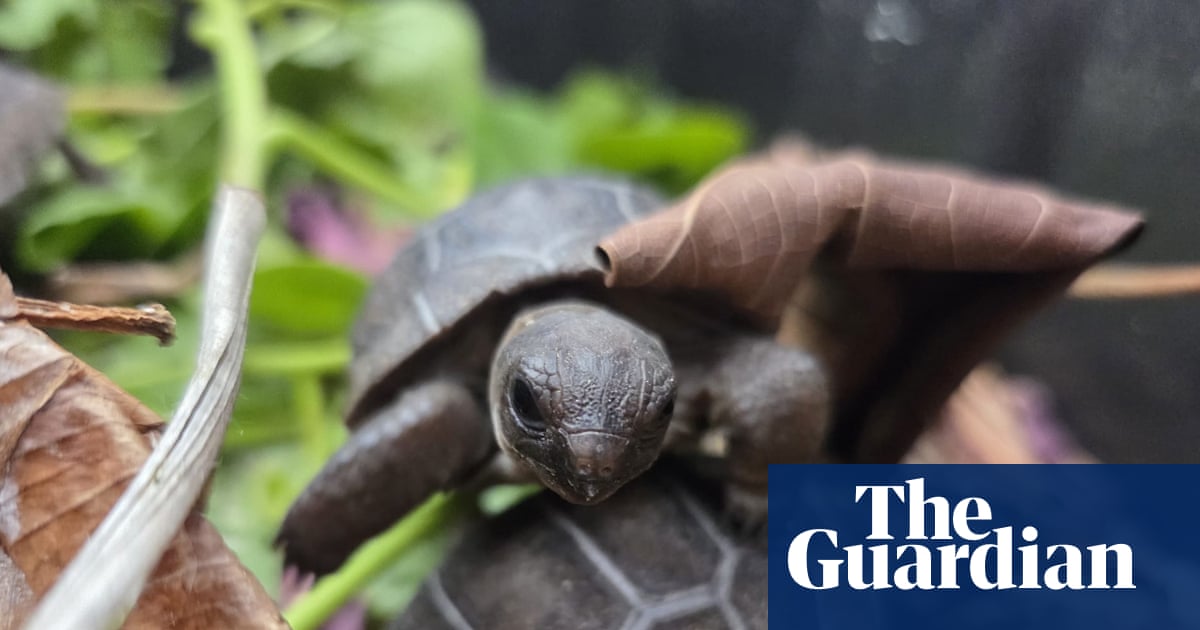
"The slow-motion pitter-patter of tiny giant tortoise feet has been worryingly rare in recent years, but that looks set to change thanks to the first successful hatching of the species with artificial incubation. One week after the intervention, the 13 babies are building up their strength on a diet of banana slices and leaves in Seychelles, which is home to one of the last remaining populations of the tortoise."
"The study examined the reproduction rates of five turtle and tortoise species, which revealed that 75% of undeveloped eggs had been fertilised but contained embryos that died at an early stage. Those findings cast new light on why the Aldabra giant tortoise, which is classified as vulnerable by the International Union for Conservation of Nature, has extremely low hatching success in wild nests. The failure rate is considered more likely to be due to environmental factors rather than a genetic trait of the tortoises."
Thirteen Aldabra giant tortoise hatchlings emerged after artificial incubation of 18 eggs taken from a single nest on Cousin Island in Seychelles. Scientists used a microscopic technique to identify at-risk embryos before incubation. The hatchlings are being fed banana slices and leaves and could eventually weigh about 250kg and live over 100 years. Reproductive analysis across five turtle and tortoise species found that 75% of undeveloped eggs were fertilised but contained embryos that died early. Extremely low wild hatching success for Aldabra giant tortoises appears driven by environmental factors rather than genetics. The successful trial could help prevent extinction risks for other threatened species.
Read at www.theguardian.com
Unable to calculate read time
Collection
[
|
...
]